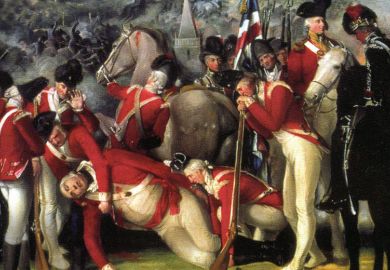In 1976, Forrest Carter’s fictionalised autobiography The Education of Little Tree was hailed as a significant work of Native American literature. Larry McMurtry, the leading authority on the American West, considered it conceivably “the great American novel of the Indian”. A 1997 film was even made of this account of Cherokee life in the Appalachians during the Depression.
The catch? The author was revealed after his death to have been a white man called Asa Earl Carter. Worse, he was a notorious white supremacist who had been a member of the Ku Klux Klan.
Or how about this one? French literary circles in the 1920s hailed “Elissa Rhaïs” as the first Algerian Muslim woman writer. The only problem is that we now know that the original Elissa Rhaïs was illiterate (and so couldn’t have penned the works attributed to her). The real writer was probably Jewish, not Muslim – and probably not a woman.
For literary critic Christopher L. Miller, hoaxes raise profound issues about authorship and identity. He is after people who deliberately purport to be someone else in order to represent another culture. He shows how hoaxes emerge from cultural borderlands, reviewing examples from the US, France and North Africa. Engaging in literary deception involves acts of appropriation where a person claims to speak with the distinctive voice of a way of life to which he or she has no right. Hoaxers are tricksters and shapeshifters who challenge notions of authenticity, but these fictions about fictions can have their own literary quality.
A good example would be Jack-Alain Léger (or was he Daniel-Louis Théron?), the subject of a major case study here. He achieved great success by becoming the novelist Paul Smaïl whose Vivre me tue (1997) made him the voice of the Beurs, second-generation Arabs living in France. Léger claimed to have written an authentic account. It was a lie. Miller, however, uses the Léger case to show that intercultural imposture is ultimately about forms of inequality.
By definition, this is a book about failed hoaxers (revealed in their true colours at some point) or those who consented to abandon their disguises. The great impostors take their secrets with them. Miller’s elegant book makes one feel for the dupes who praised a work’s authenticity. He shows that many found what they wanted to hear in these impostures. This is why scholars such as Natalie Zemon Davis (in her work on Martin Guerre) have recognised that impostor narratives are fertile material for interrogating cultural assumptions.
Impostors ultimately becomes a study of the nature of authorship and the act of reading. If the author is not who he or she purports to be, does it matter? After all, fiction is made of lies by definition. To give an example that Miller cites, would Flaubert’s Madame Bovary be better if it had been written by a real French housewife? The hoax can be a way of taking on a new voice and speaking for people who have not been able to speak for themselves. It is thus the colonial experience that pulls Miller’s book together. He shows how empire creates an orientalist fascination with subordinated peoples. The flip side of imperialism is the desire to adopt their voices and tell their stories.
Rohan McWilliam is professor of modern British history at Anglia Ruskin University and author of The Tichborne Claimant: A Victorian Sensation (2007).
Impostors: Literary Hoaxes and Cultural Authenticity
By Christopher L. Miller
University of Chicago Press
256pp, £62.00 and £21.00
ISBN 9780226590950 and 9780226591001
Published 29 January 2019
POSTSCRIPT:
Print headline: Tricked by the masked author
Register to continue
Why register?
- Registration is free and only takes a moment
- Once registered, you can read 3 articles a month
- Sign up for our newsletter
Subscribe
Or subscribe for unlimited access to:
- Unlimited access to news, views, insights & reviews
- Digital editions
- Digital access to THE’s university and college rankings analysis
Already registered or a current subscriber?








